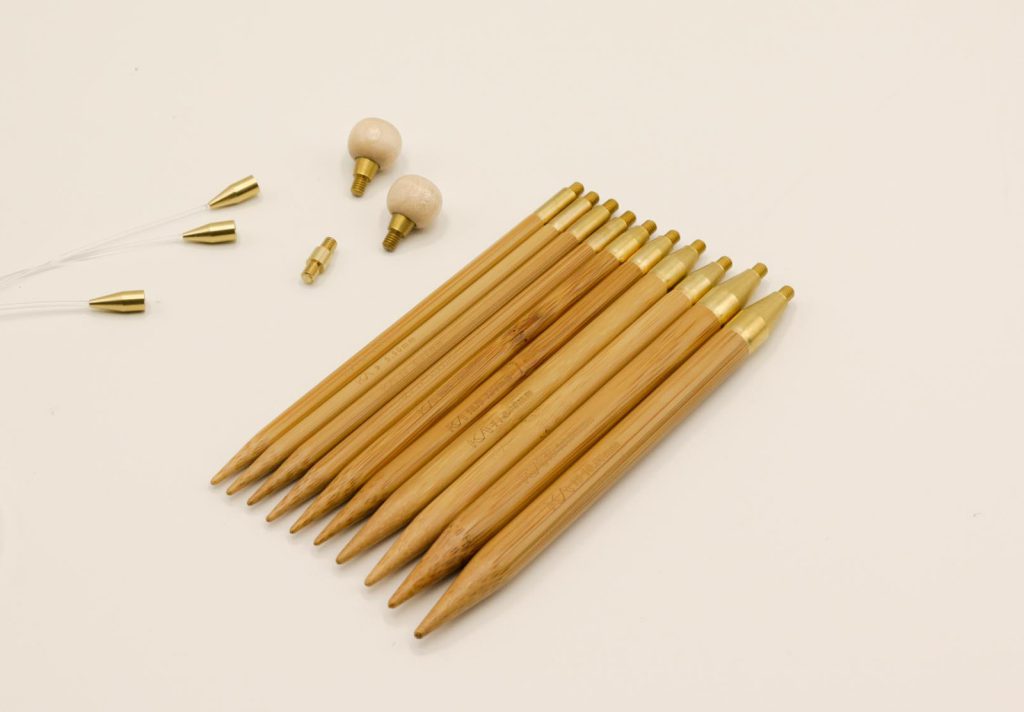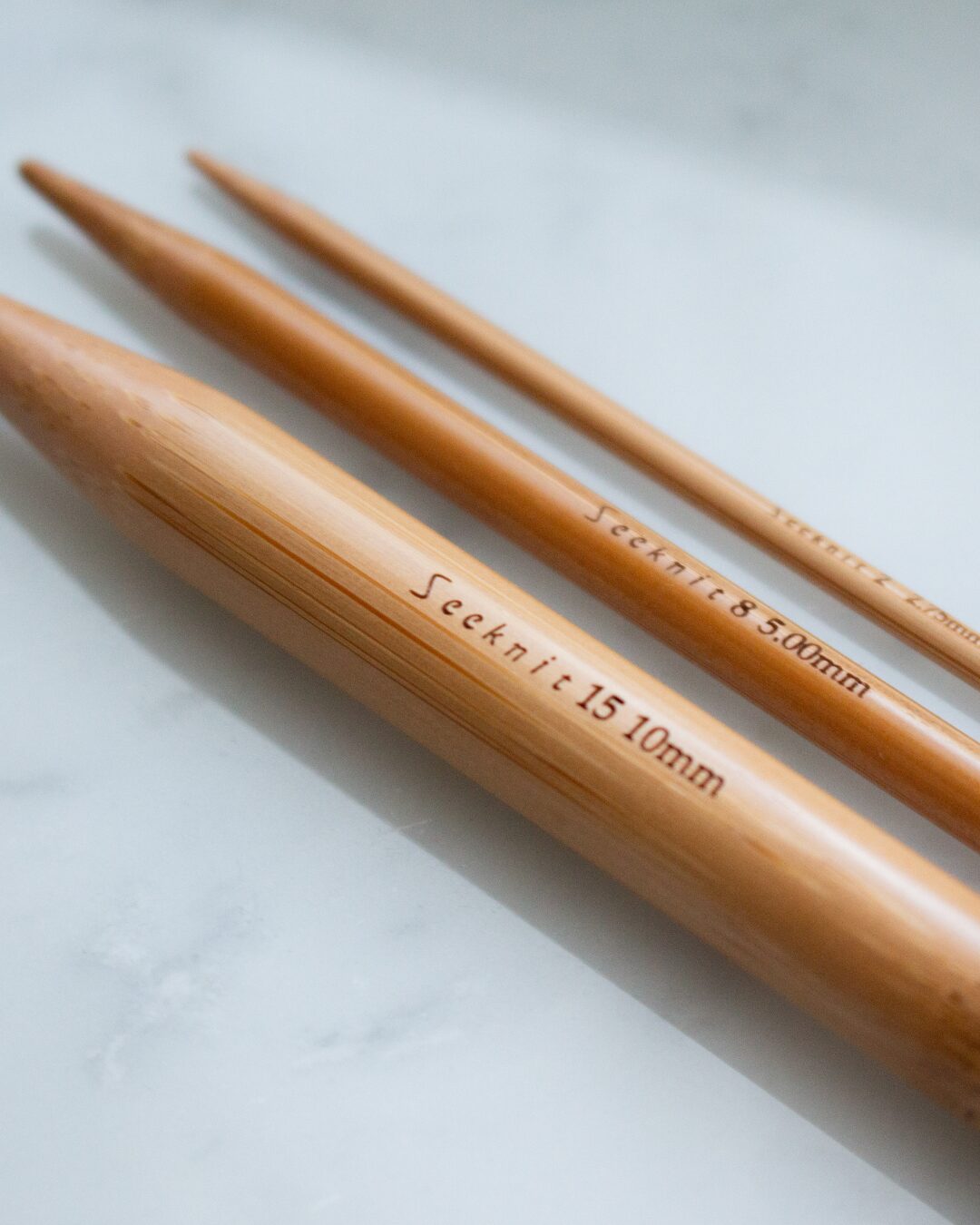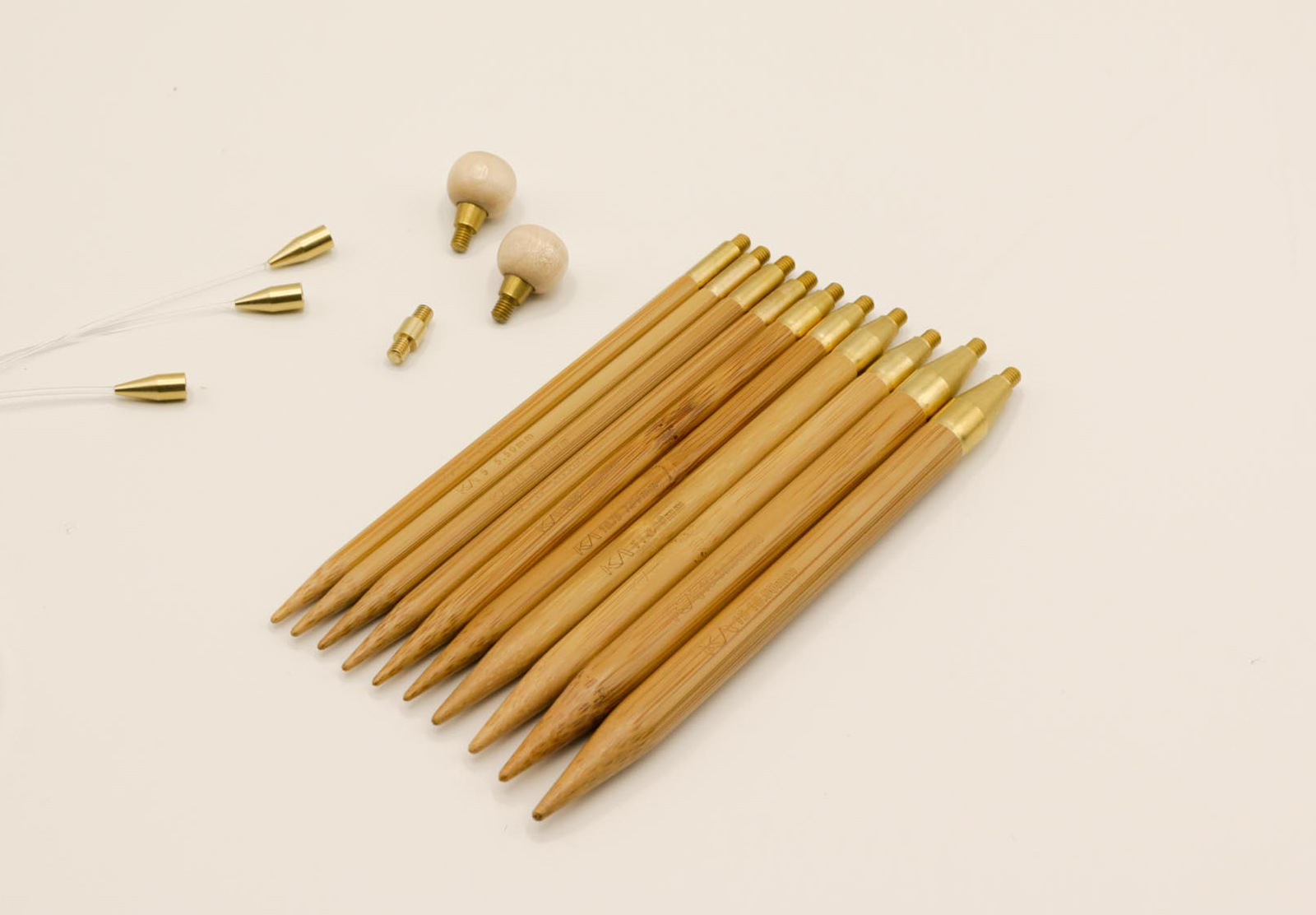1. What to do if the yarn glides worse on the needles
With prolonged use, the surface of the bamboo may deteriorate and the slippage of the yarn may worsen. We recommend applying carnauba wax. Place the needle on a flat surface, hold the solid carnauba wax in your hand, rub the surface of the needle with the wax, and polish with a dry cloth. This will improve the yarn’s smoothness and the bamboo’s luster.
2. How to deal with discolored metal parts
Circular needles and interchangeable circular needles have brass metal fittings and they may discolor over time. In that case, soak a cloth with a commercially available penetrating lubricant (e.g. WD-40) and wipe the metal fittings. At that time, please be careful not to let the penetrating lubricant adhere to the bamboo needles. If it adheres, wipe it off immediately with a cloth.
3. The dye on the yarn has been transferred on the needle
We recommend using the needles as they are. But if you want to remove the color, we would like to inform you how to remove the color on the needle when the color on the yarn sticks to the needle as follows: If the transfer is light (just on the surface of the bamboo needle), we recommend wiping with a little alcohol. But in this case, the varnish on the surface will peel off or the bamboo will get soaked, making the surface of the needles dull and rough. In this case, apply solid wax (such as carnauba wax or candle wax) and polish with a dry cloth. This will improve the slipperiness of the needles and the luster of the bamboo. In any case, the dye that has been transferred to the needle cannot be completely removed. Therefore we recommend using the needles as they are.
Precautions for use
1. Precautions for use and storage
Since natural bamboo is used, please refrain from using it if it gets wet with water or if water vapor adheres to it. When it gets wet, the fibers on the surface of the bamboo needles become fluffy, making the needles less slippery. Also, to prevent the growth of mold, wipe it with a dry cloth after use.
2. Handle gently
Bamboo knitting needles are made of natural material, so if a strong force is applied, the needle may break, and scratches or dents may occur. If you hold the needle excessively firmly and knit it, the needle may break, such as when the stitches are tight. When handling, do not apply excessive force and handle it gently.
3. Every bamboo has a different color
Since bamboo knitting needles are made of natural materials, the fiber, color, and texture are different for each one. Koshitsu bamboo needles that have been treated with high temperature and high pressure have different colors from light to dark brown. In addition, the color may change over the years of use.

4. Laser engraving
The size for each bamboo knitting needle is laser engraved. The bamboo has a hard lenticel part and a soft inner part. Furthermore, because the density and hardness of the fibers differ from bamboo to bamboo, there are differences in the depth of the engraving.




